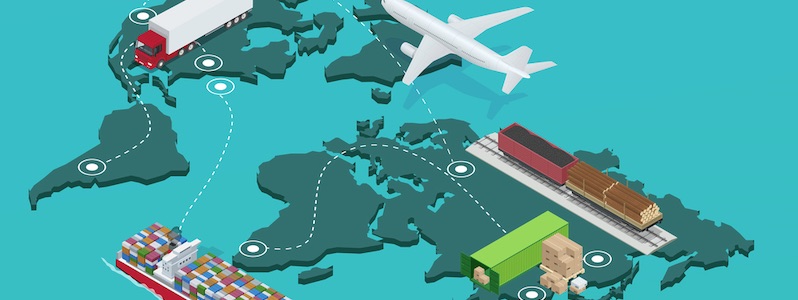
Retailers worldwide are now applying blockchain technology to their supply chains to verify the origin and traceability of goods, among other uses.
Of all the areas in which blockchain applies to commerce, supply chain applications are the furthest along in development and usage. This stems primarily from the database-like features of blockchain combined with traceability and security benefits, which are a natural fit for reducing costs as well as ensuring that a company fulfills its brand promise for product sourcing or quality.
Most of the blockchain projects in the retail supply chain space are “private.” Companies are building their own blockchains for themselves and their supply chain partners and are otherwise not available for others to use or copy.
Public Blockchains?
To date, primarily large retailers have developed blockchains due to costs. For example, Walmart uses blockchain technology to track food products through the entire supply chain to identify the source of food-borne diseases and take quick action. Target recently announced its blockchain initiative, called ConsenSource, to certify and audit suppliers for the company’s paper manufacturing.
Both retailers have not only the resources to build a blockchain from scratch but also the power to ensure adoption from their supply chain partners. But other large retailers, supported by supply chain consultants such as Deloitte and PricewaterhouseCoopers, are looking to the blockchain to improve the financial viability and lower the risk of their supply chains.
Moreover, initiatives are underway to develop public supply-chain blockchains. Notably, Ernst & Young, another consultant, placed its new Nightfall software — based on the Ethereum blockchain — in the public domain so that any company can use it without investing development resources. Also, dozens of startups are using the blockchain to tackle different aspects of the supply chain, especially in the following areas.
- Origin. Tracking the source of products and following them through the supply chain is critical for many retail merchants. Whether for health and safety reasons or fair trade and sustainability, blockchain provides traceability so that merchants and their consumers know where the products come from. Blockchain projects focused on this area include Provenance, ShipChain, DORÆ, Modum, and Bext360.
- Data Quality. Supply chains are notoriously murky, with systems that often do not communicate and with large incentives for suppliers to inflate their performance. Blockchain helps to solve these challenges by exposing the full supply chain and making it much more difficult to falsify. Better supply chain data is being driven by blockchain projects such as Eximchain, OriginTrail, Peer Ledger, and FR8 Network.
- Finance. Supply chain companies frequently operate on low margins with high capital needs. Thus the need for supply chain financing is significant. Blockchain streamlines financing by factoring receivables to, for example, meet working capital needs or by better managing escrow. Companies that are changing the nature of supply chain financing through blockchain include Zero1 Capital, CargoCoin, and CargoX.
Transforming Supply Chain
In short, blockchain is transforming the supply chain. An organization called Blockchain in Transport Alliance, with nearly 500 members, is dedicated to enabling and encouraging the process.
Retailers may find that blockchain can reduce their supply chain costs, locate financing, and ensure the quality and traceability of their products. An investment now while in the early stages could pay huge dividends.